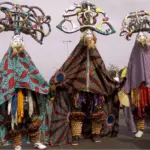In response to the recent controversies surrounding the National Social Register (NSR) of Nigeria, the Africa Network for Environment and Economic Justice (ANEEJ), a prominent Civil Society Organisation, has released a press statement to defend the integrity of the social register and urge against reinventing the wheel.
The NSR, a critical tool in poverty reduction initiatives, has come under scrutiny following speculations that the National Economic Council (NEC) may have disregarded its significance during a recent meeting held on July 20, 2023. The Office of the Vice President has remained silent, leading to further confusion and tension.
 ANEEJ, which played a key role in the independent monitoring of the utilisation of the Abacha II funds totalling $322.5 million returned from Switzerland, sought to clarify the process of developing the NSR and its crucial role in social investment programmes. According to their press statement, the development of the NSR was initiated during the Jonathan administration, with the World Bank’s involvement in eight states under the Federal Ministry of Finance.
ANEEJ, which played a key role in the independent monitoring of the utilisation of the Abacha II funds totalling $322.5 million returned from Switzerland, sought to clarify the process of developing the NSR and its crucial role in social investment programmes. According to their press statement, the development of the NSR was initiated during the Jonathan administration, with the World Bank’s involvement in eight states under the Federal Ministry of Finance.
When the Buhari Administration assumed office in 2015, the NSR was incorporated into the National Social Investment Programme as part of the campaign promise of the All Progressives Congress (APC). The World Bank, in collaboration with federal and state governments, provided guidelines that promoted a community-based approach, adhering to international best practices.
To ensure transparency and inclusivity, each state government established a State Operations Coordinating Office (SOCU) within their Ministry of Planning. Trained enumerators engaged directly with the identified poorest communities through focus group discussions. The communities themselves played a role in identifying the parameters for poverty and naming the households falling under those criteria.
ANEEJ emphasised that the NSR is not singularly sourced and developed by the federal government, but instead, the states are responsible for collating and defining their own social registers. The data is then submitted to the National Social Safety Net Coordination Office at the federal level for cleaning and alignment with other state social registers, creating the National Social Register.
The organisation highlighted the success of the NSR in promoting financial inclusion among vulnerable Nigerians, with over 83% of individuals on the NSR having bank accounts and electronic wallets to receive cash transfers. Additionally, donor agencies, development partners, and various groups have utilised the NSR for their initiatives, commending the database’s integrity.
ANEEJ cautioned against any attempts to reinvent the wheel and waste public resources on a needless re-enumeration of the register. Instead, they advocated for improving and safeguarding the existing NSR through an open community-based approach, free from political interference and favouritism.
Follow the AkweyaTV channel on WhatsApp: https://whatsapp.com/channel/0029Va7m7dvJuyA7h5XMc22i














